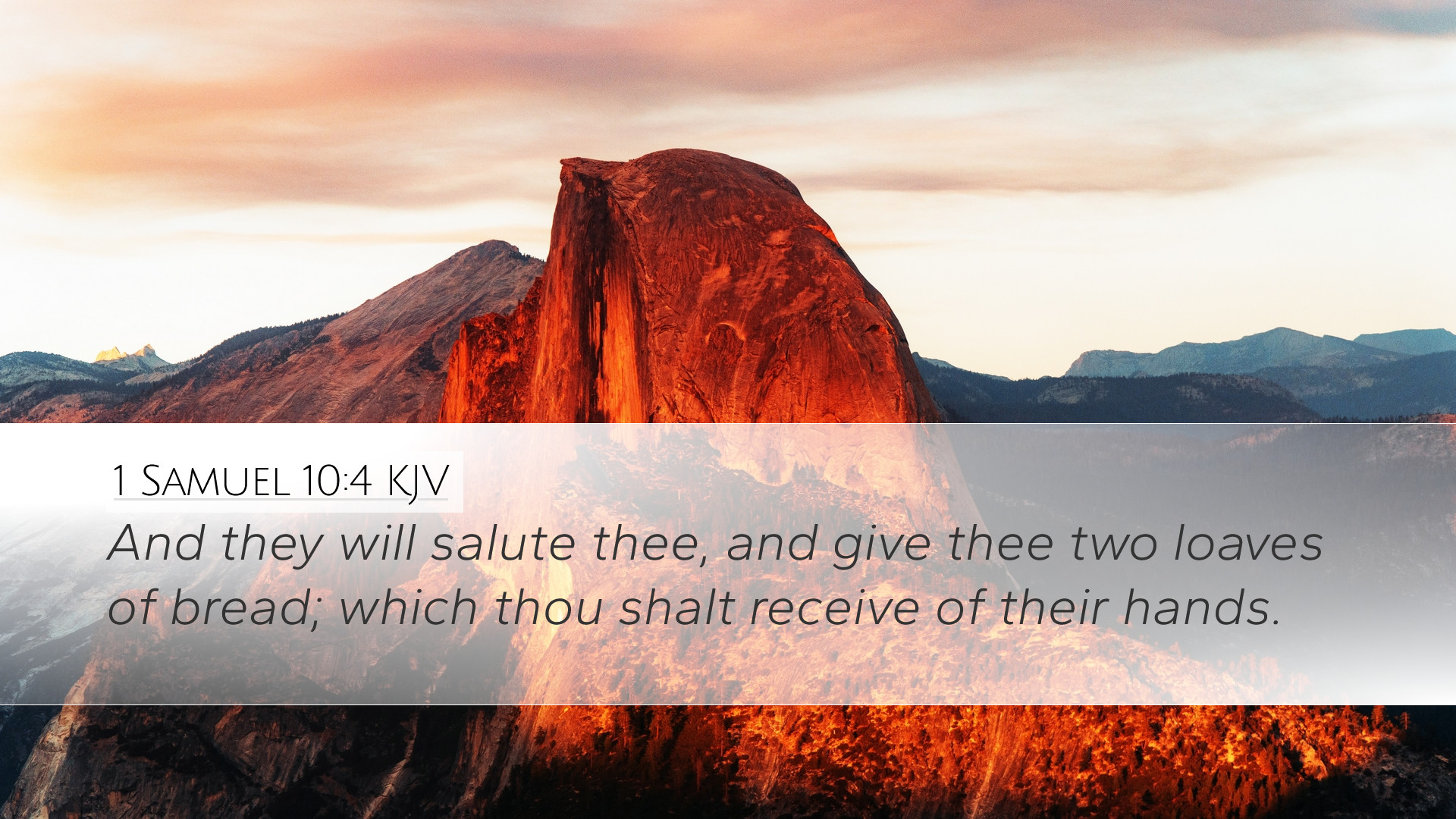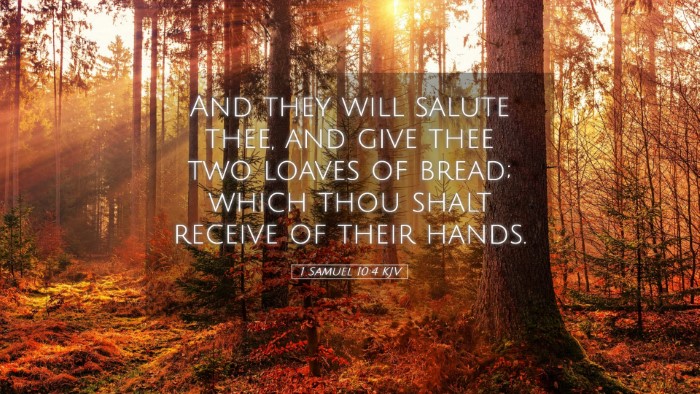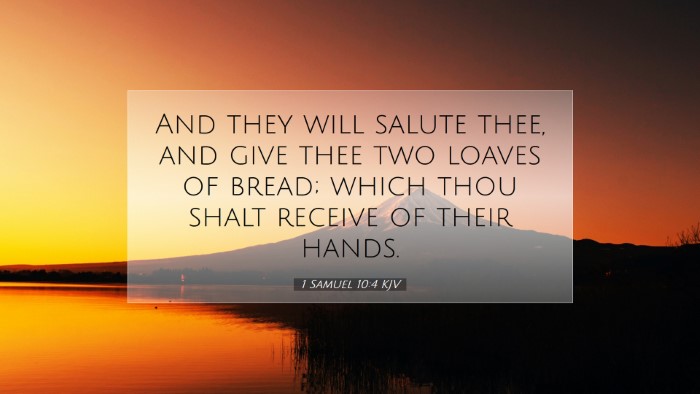Commentary on 1 Samuel 10:4
Verse: "And they will ask thee, How are the cattle? And thou shalt answer, They are well: and, behold, thy father hath left the care of the asses, and sorroweth for you, saying, What shall I do for my son?"
Introduction
This verse falls within a significant narrative of the anointing of Saul as the first king of Israel. It highlights the divine orchestration at the heart of leadership transitions in Israel's history. Several commentaries can provide a multi-faceted view on this text, drawing from the insights of well-known theologians such as Matthew Henry, Albert Barnes, and Adam Clarke.
Cultural and Historical Context
The event plays out in a transitional period for Israel, where the people have demanded a king to rule over them, similar to other nations. This reflects their desire for human leadership over divine guidance. The careful orchestration of divine encounters shows that God had chosen Saul, preparing him through various means.
Matthew Henry notes the significance of this narrative, pointing out how God communicates directly with those He is preparing for a role of leadership. The narrative builds tension and expectation around Saul’s character and future responsibilities.
Key Themes
The verse emphasizes several themes relevant to leadership, divine calling, and the importance of communication in both personal relationships and between God and His chosen leaders.
- Divine Guidance: The circumstances surrounding Saul’s anointing highlight God’s plan. Everything that happens is not merely chance but rather purposeful direction from God.
- Responsibility and Care: As Saul encounters these individuals, he learns about the concerns of those who care for him, including his father. This sets a tone for future leadership responsibilities that he would need to embrace.
- Community Involvement: The question posed to Saul about the cattle demonstrates communal relationships and highlights the collective anxiety regarding the future.
Exegesis
Albert Barnes provides insights into the sociolinguistic elements of the text, focusing on how greetings and inquiries reflect the state of affairs in Israelite society, emphasizing the responsibilities of family and community. The question about the cattle is not mere chit-chat; it serves to ground Saul in the everyday concerns of his people, including familial obligations.
Moreover, the admonishment of Saul’s father adds depth to the understanding of how personal and communal pressures influence leadership. There is a balance that leaders must achieve between personal care and public duty.
Theological Implications
Adam Clarke elucidates the theological implications of this text, noting that it serves as a foreshadowing of Saul’s eventual struggles in leadership. The nature of the inquiry about the cattle signifies not just concern for livestock but indicates broader issues of stability, provision, and health within the community.
The weight of Saul’s call reflects a divine responsibility, emphasizing that such roles are not only about authority but also about service and sacrifice. The verse serves as a reminder to contemporary leaders about the importance of recognizing and addressing the needs of those they are called to serve.
Practical Applications
For pastors, students, and scholars, this verse prompts reflection on several practical applications:
- The Nature of Calling: Recognizing that God prepares individuals for their roles can encourage believers to listen to divine guidance in their lives.
- Leadership Dynamics: The balance of personal care and leadership responsibilities must be navigated with wisdom and compassion.
- Community Awareness: Leaders should remain attuned to the needs and concerns of their communities, just as Saul was directed to respond to his father's worries.
- Communication Style: The way leaders interact and communicate with their people may influence their effectiveness and relational rapport.
Conclusion
1 Samuel 10:4 serves a rich theological, social, and practical purpose in understanding the nature of leadership as divinely appointed. Insights drawn from public domain commentaries illustrate the intricate dynamics between Saul’s personal life, the expectations of Israel, and God's overarching plan. For pastors, students, and theologians, this verse is a call to reflect upon and internalize the complexities of divine appointing in their own contexts.


